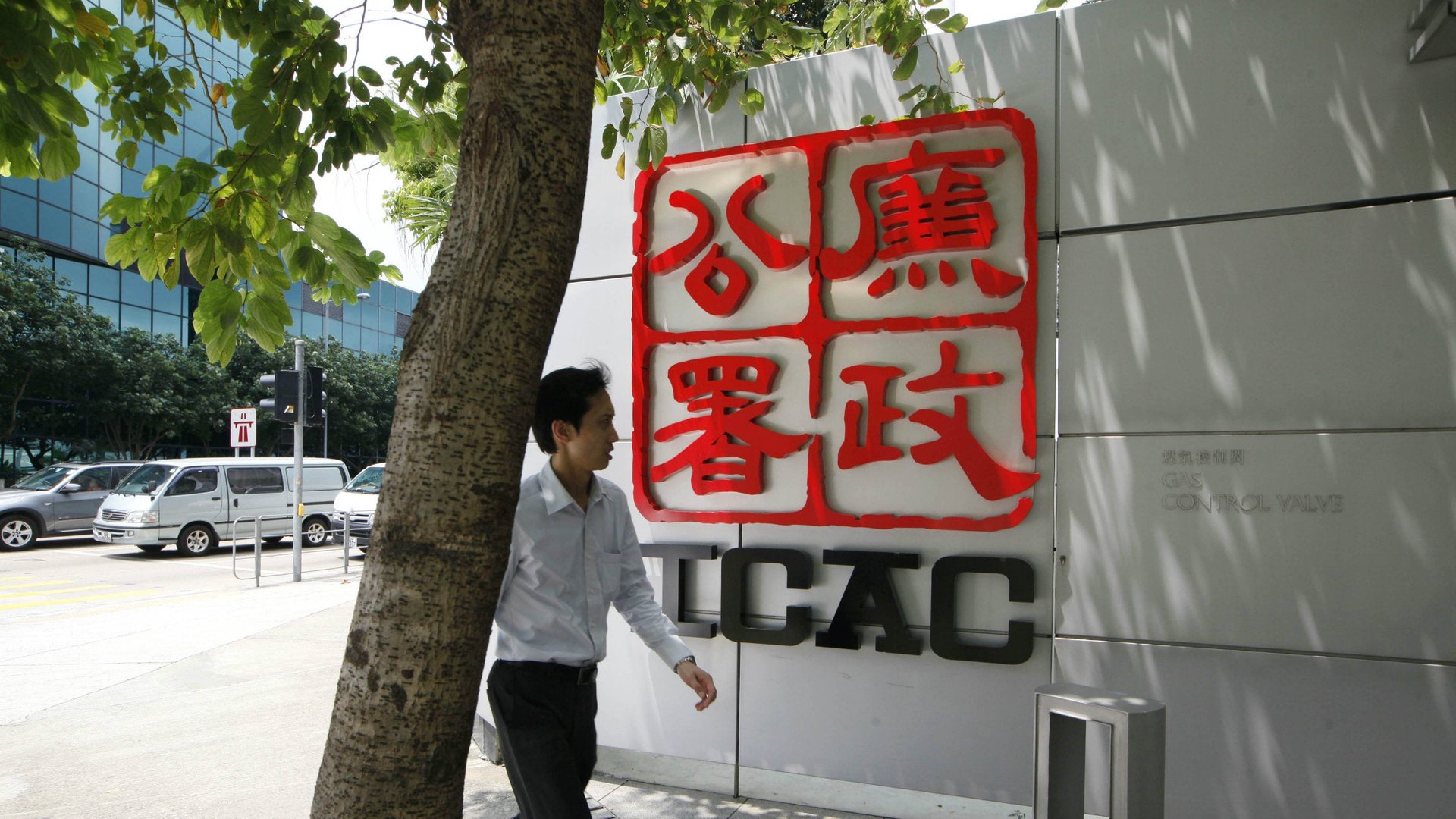Hong Kong’s anti-corruption regulator is the latest to target JP Morgan Chase
Hong Kong’s top anti-corruption body, the Independent Commission Against Corruption, appears to have stepped into the ongoing investigation of JP Morgan Chase’s hiring practices in China with the recent arrest of Fang Fang, the bank’s former vice chairman of investment banking in Asia.


Hong Kong’s top anti-corruption body, the Independent Commission Against Corruption, appears to have stepped into the ongoing investigation of JP Morgan Chase’s hiring practices in China with the recent arrest of Fang Fang, the bank’s former vice chairman of investment banking in Asia.
The US Securities and Exchange Commission (SEC) is probing whether the bank violated the US’s Foreign Corrupt Practices Act by offering plum jobs in exchange for winning valuable deals, but the ICAC’s remit is somewhat narrower. The agency was founded in the 1970s to eradicate Hong Kong’s then-prevalent culture of bribe-taking, and is tasked with enforcing the Prevention of Bribery Ordinance, which is limited mainly to offers either made by or to public servants in Hong Kong.
Fang was the head of the bank’s China operations when it was making many of the controversial hires of well-connected sons and daughters of powerful Communist Party executives, as Quartz has previously reported, and has close ties to the party. Caixin, which first reported the arrest (link in Chinese) in Hong Kong, said Fang had been released on bail but is not allowed to leave Hong Kong.
Cooperation between the ICAC and US regulators is rare, although the Securities and Futures Commission, Hong Kong’s stock regulator, has partnered with the SEC on insider trading cases. The ICAC had no comment on this case, but a spokesman noted that US and Hong Kong regulators last joined forces on a case against Rockefeller & Co. The Hong Kong managing director of the investment firm was convicted of accepting bribes in 2001, and sentenced to six years in jail.
The investigation into JP Morgan Chase is “an obvious example where cooperation would make sense, because it is quite possible that any corruption involved could have taken place in Hong Kong, while the evidence may have been gathered in the US e-mail trawl,” David Webb, a former investment banker and ex-director of Hong Kong’s stock exchange, told Quartz. The US bank has paid billions in fines and legal fees in recent years to settle a long list of civil and criminal cases against it.
Soon after Fang left the bank in March, the ICAC paid a visit to his office, the Wall Street Journal reported earlier, and regulators in Hong Kong have been monitoring the SEC investigation and cooperating in some cases. Fang’s broker’s licence was revoked on March 21, The New York Times reported, citing a database maintained by Hong Kong’s securities regulator.
If the US and Hong Kong agencies do team up in earnest to look at hiring practices by foreign banks in China, it could be a long partnership—the SEC has recently expanded its inquiry into hiring practices from JP Morgan Chase to at least five other banks, including Goldman Sachs and Morgan Stanley, all of whom have hired the well-connected offspring of powerful Chinese officials.
Jennifer Chiu contributed reporting.